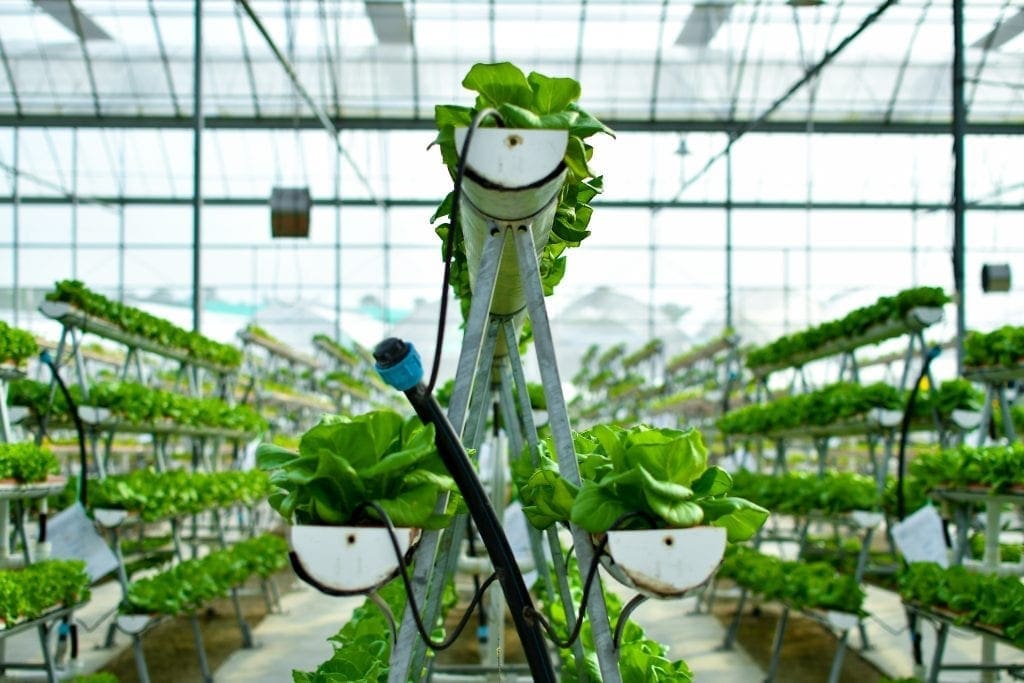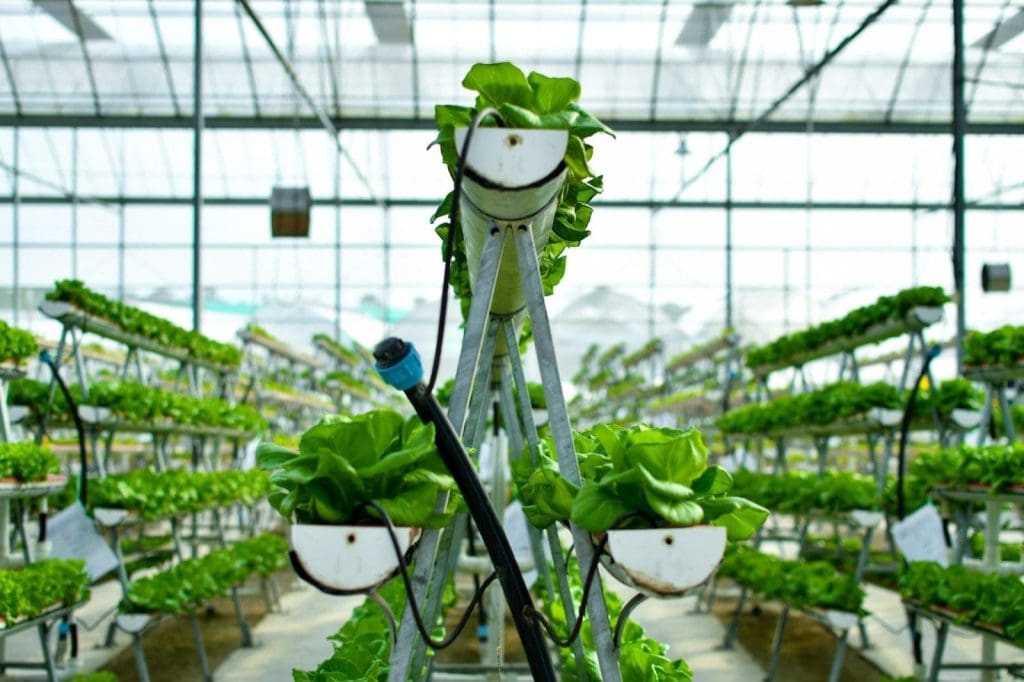If there was ever a time to make conscious choices when it comes to health, 2020 would be it. This increased focus on wellness comes off the heels of the coronavirus, which is known to target those with underlying conditions such as diabetes, heart disease, obesity, high blood pressure and high cholesterol. All of these disorders have direct links to poor diet and have left people not only nutritionally compromised but especially vulnerable. The shift in concern when it comes to healthfulness has had an effect on the eating habits and overall attitude of American consumers, forcing many of us to think more deeply about every part of the food system including our own accessibility, how our produce is being grown, processed, handled, distributed and even prepared. This has led our state especially to rethink its own practices and implement new strategies such as vertical farming in NJ.
The future of food production in New Jersey is looking up, literally.
In the wake of a global health and economic crisis, there’s arguably never been more of a need to close food inequity gaps and bring awareness to the very things we’re putting inside our bodies. Jersey City’s own Mayor Steven Fulop expressed concern regarding the Hudson County area’s susceptibility to the virus. The city was considered one of the hardest-hit regions of New Jersey, and its disadvantaged members bearing the brunt of it. After working through the budget, Fulop announced in June an initiative that would bring 19,000 pounds of fresh produce to Jersey City residents every year, free of charge.

Mayor Fulop explained, “It is clear that the virus has had a disproportionate impact on people with pre-existing heart conditions, high blood pressure, obesity and diabetes which is directly linked to a person’s diet, and as a result, we feel it is more important than ever to focus on food access and education.”
His plan to reshape the diets of residents includes the installation of 10 vertical farming sites scattered across the city in locations such as schools, senior centers and other municipal buildings. Working closely with the World Economic Forum and Newark-based AeroFarms, the city has signed a three-year contract aimed at hopefully addressing poverty and food inequality. In comparison to conventional agriculture, vertical farming provides a solution that’s both economically and ecologically sensible.
What is vertical farming?
As its name suggests, vertical farming stacks crops upwards (instead of horizontally) in order to minimize the amount of space occupied. That said space, however, is typically a warehouse or multi-story building devoid of things like sun and soil. AeroFarms, for example, uses its 70,000-square-foot headquarters (a former steel mill) in Newark’s Ironbound district to harvest up to two million pounds of food each year. And they’re doing it in half the amount of time it takes a commercial field farm.

Their practice of vertical farming in NJ is not just about increasing yield. By taking the process indoors, variables such as temperature, light, humidity, nutrients and gases are able to be controlled making year-round farming possible independent of the season and weather. Through careful engineering, AeroFarms is able to simulate the ideal environment for each individual crop while lowering emissions and reducing environmental impact—including using 95 percent less water and zero pesticides. The algorithm results in produce that has reached optimal levels of taste, texture, color and most importantly, nutrition.
How has it impacted the state so far?
Newark is just one example of a community close to home that’s reaped the benefits when it comes to advancements in sustainable urban agriculture. Philip’s Academy Charter School is currently the only school in the country to own and operate an AeroFarms System—and Jersey City is on track to be the first municipal vertical farming program in the United States. The School Farm, as it’s called, is located in the dining hall and grants students consistent access to fresh, healthy food that can sometimes be hard to find in parts of the city. It also gives them the tools to better understand where their food is coming from and why innovations like this matter.

As promising as this Jersey City initiative sounds, it’s been met with some hesitancy. The program itself does in fact provide access to free food, but not without strings attached. It’s been said residents will have to participate in quarterly health screenings and healthy eating seminars. However, there’s been some confusion surrounding whether or not these will be mandatory or just encouraged. The data gathered from these tests will then be shared back with the city, which brings up concerns regarding confidentiality.
Residents have also expressed apprehension in relation to how accessible the food will actually be when hurdles are being put in front of the program. Whether that means they’ll have to upend their schedules to adhere to appointments or add to their daily commute. Given these guidelines, it’s understandable to worry that the program could become more of a nuisance than a solution.
The verdict on vertical farming in NJ
Despite its obvious and attractive benefits, the jury is still out on vertical farming in NJ. The system requires massive amounts of energy, which can make it extremely costly in the long run. Many of Jersey City’s buildings are outdated and can’t support energy-saving technologies. There are also limitations as to what vertical farms can grow. Ideally, anything could be harvested under the correct controlled environment. But, companies such have so far only produced herbs, kale, arugula and microgreens. Which begs the question, is that all we’re supposed to eat?
There’s still a great amount of enthusiasm for what the future of farming and this new Jersey City program can achieve. Months of panic-buying and limited access to fresh, affordable food have admittedly given us all a bit of perspective. It’s even caused a spike in demand for vertical farms across the country. In that sense, vertical farming in NJ can only be a step in the right direction if not to shine a light on a different kind of agricultural approach, It paints a picture of how a city could one day become self-sustaining if there were ever to be another unforeseen halt in the supply chain.
Abby is The Digest's Managing Editor. She spends her time looking at dogs on Instagram and eating her way around Jersey City.
- Abby Montanezhttps://thedigestonline.com/author/abby/
- Abby Montanezhttps://thedigestonline.com/author/abby/
- Abby Montanezhttps://thedigestonline.com/author/abby/
- Abby Montanezhttps://thedigestonline.com/author/abby/


